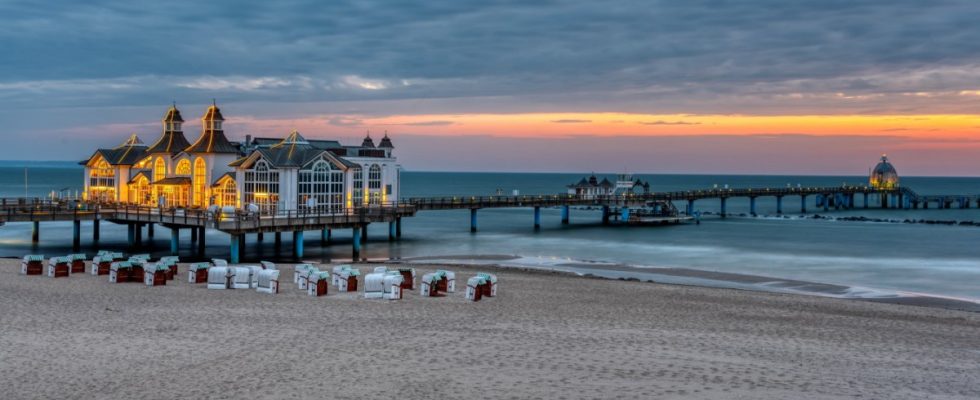The state government in Schwerin must know that it won’t be easy with the liquefied natural gas terminal on Rügen. Last week, the state ministers for economics and the environment, Reinhard Meyer and Till Backhaus (both SPD), reported to the Green Federal Minister of Economics, Robert Habeck. For such a project, the two write, “politics need the support of the population, the economy and the local communities”. This only works with accompanying measures “that contain concrete added value for the region”.
The region has been in turmoil for months. Such a gas terminal should first be built off the coast, within sight of a few holiday beaches. Now it is to be built on the island, in the port of Mukran, right next to Sassnitz. And because liquefied natural gas, LNG for short, is also intended to replace Russian gas and thus avert an energy crisis, the federal cabinet recently passed an amendment to the “LNG Acceleration Act”. The approvals for the gas systems in and around Mukran should also be approved in an expedited procedure. Citizens’ initiatives have formed, mayors and local councils are rebelling.
The Jasmund National Park is nearby
The state government wants to avoid the problem with almost one billion euros from federal funds. At least that’s what the ideas that Schwerin has now put together in a six-page paper entitled “Future-proof Rügen” suggest that. After that, the port in Mukran is to be further expanded overall, also for the almost 300 meter long Panamax container ships. Areas and roads are to be expanded in such a way that the individual parts of offshore wind farms can also be shipped there. In the hinterland, new tracks for industrial areas are to be built and also a so-called electrolyser, which produces hydrogen from electricity and could thus supply industry and ships. If the worst comes to the worst, there should also be a new ship for “fighting accidents”. “In particular, the natural balance of the coast of Mecklenburg-Western Pomerania is likely to be adversely affected and burdened by the LNG project,” the paper admits.
It’s true: not far from Mukran is the Jasmund National Park, and nature is considered the capital of the island. There is a risk of “unchecked industrialization of the unique coastal landscape,” warns Sascha Müller-Kraenner, head of the German Environmental Aid. The Schwerin paper counters with demands to compensate for the “impairment of the herring” and it demands five million euros for a research project “on the effects of continuous noise on the harbor porpoise populations in the German Baltic Sea”. Porpoises are extremely sensitive to noise – and the floating LNG terminals are noisy; as are the ships that bring in the liquefied gas.
It’s also the noise that worries neighboring beach communities. After all, the island is generally considered a quiet place. That has already changed since gas deliveries by ship headed for the mainland port of Lubmin near Greifswald. The terminal there is also to be relocated to Mukran. Meanwhile, millions of euros for tourism should appease the recalcitrant island population. Ten million for the expansion of the tourist infrastructure in the surrounding communities, plus three million for a one and a half kilometer bike path near Mukran. The federal government is to make 620 million euros available for the expansion of railway lines alone. But they’ve either been in the planning for a long time anyway, or they’re not on Rügen at all. The state government pulls out all the stops.
With the opponents on Rügen, however, she bites on granite. “We won’t let the island be destroyed,” says Karsten Schneider, the mayor of the Baltic Sea resort of Binz. Apparently the state government is ready to sell off the island’s silverware, its nature. Schneider says: “We are not for sale.”

